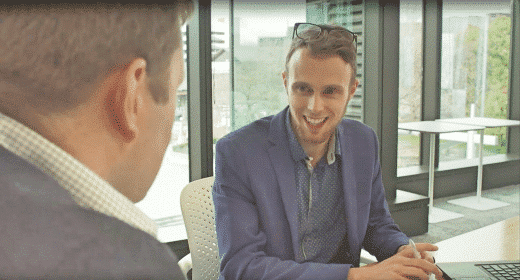Dyslexia in the Workplace
Transitioning to the workforce can be challenging for those with dyslexia and other specific learning disabilities. Aidan Milner recommends total honesty and not shying away from support, to level the playing field.
As a child I was diagnosed with severe dyslexia and dyscalculia.
One-to-one teaching was where my coping strategies really began and laid the foundation for how to deal with dyslexia in everyday life. I graduated with a Master of Science and now work as a geologist for Aurecon’s Geotechnical/Ground Engineering team in Auckland.

In job interviews, I’ve always been open about my dyslexia and its effects.
I discuss how it may affect my work, how I get around the issues that it causes and where I could see an employer helping me. My involvement with SPELD NZ (as one of its ‘Champions’/role models) was listed on my CV because I’m proud of the fact that I have dyslexia and what it’s taught me. If a potential employer seems to have a problem with it, then that’s a red flag for what it would be like to work with that firm.
The company I work for has been really supportive.
I have the Read and Write software for my laptop, which is really helpful as it enables my reports and emails to be read aloud for proofing. Work pays the subscription for me. I’ve also had help with making clever ways to check data in spread sheets. Rather than using the office tablets, I have one assigned just to me. This means I can record field notes in a structured way using pre-populated Excel spreadsheets where I can select from a drop-down list. This solves spelling errors and saves time typing notes. Everyone in the team is very helpful with checking my work too.
I’m proud of the fact that I have dyslexia and what it’s taught me.
I still have my struggles.
It’s the numbers that still get me (not good when working for an engineering company) but I have support and that’s why I’m so open about it as well. If people are not aware, then how will they know what parts of your work to pay more attention to when checking?
Unlike the school system, my employer doesn’t view my challenges as barriers.
I think if you have proved you can get through uni or another major task, then any good employer should see that you’re capable of overcoming the barriers. And if they can’t see past that, well take it as a sign that it’s best you don’t work for them.
At primary school I was just labelled the lazy kid who just needed to try harder and stop misbehaving.
As a contrast, I recently helped lead the geology input as part of a major bid to design and construct the new Manawatu Gorge Replacement Road. Our bid team won the $620 million project and my geology model will play a key role. Who would have thought that this would one day be my reality? It just goes to show that with the right support and hard work, anything can happen.
For more tips on strategies in the workplace, tale a look at SPELD NZ’s Services for Employers






